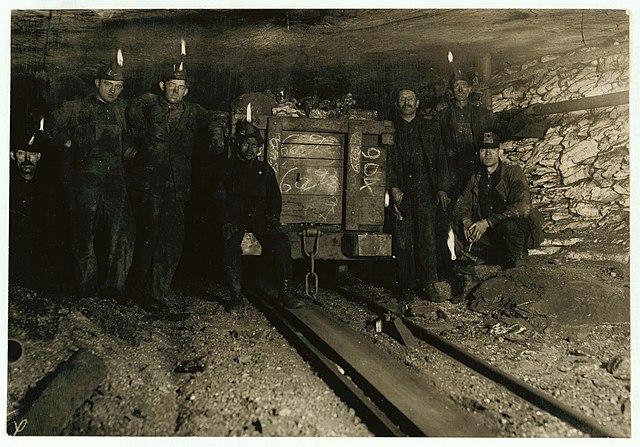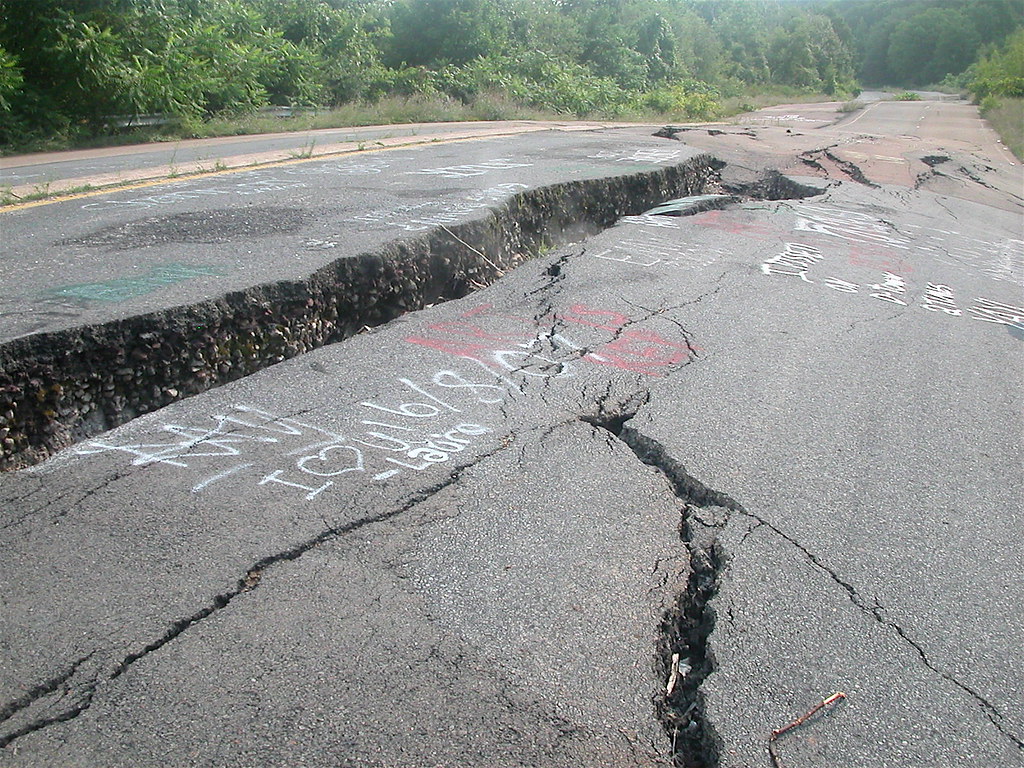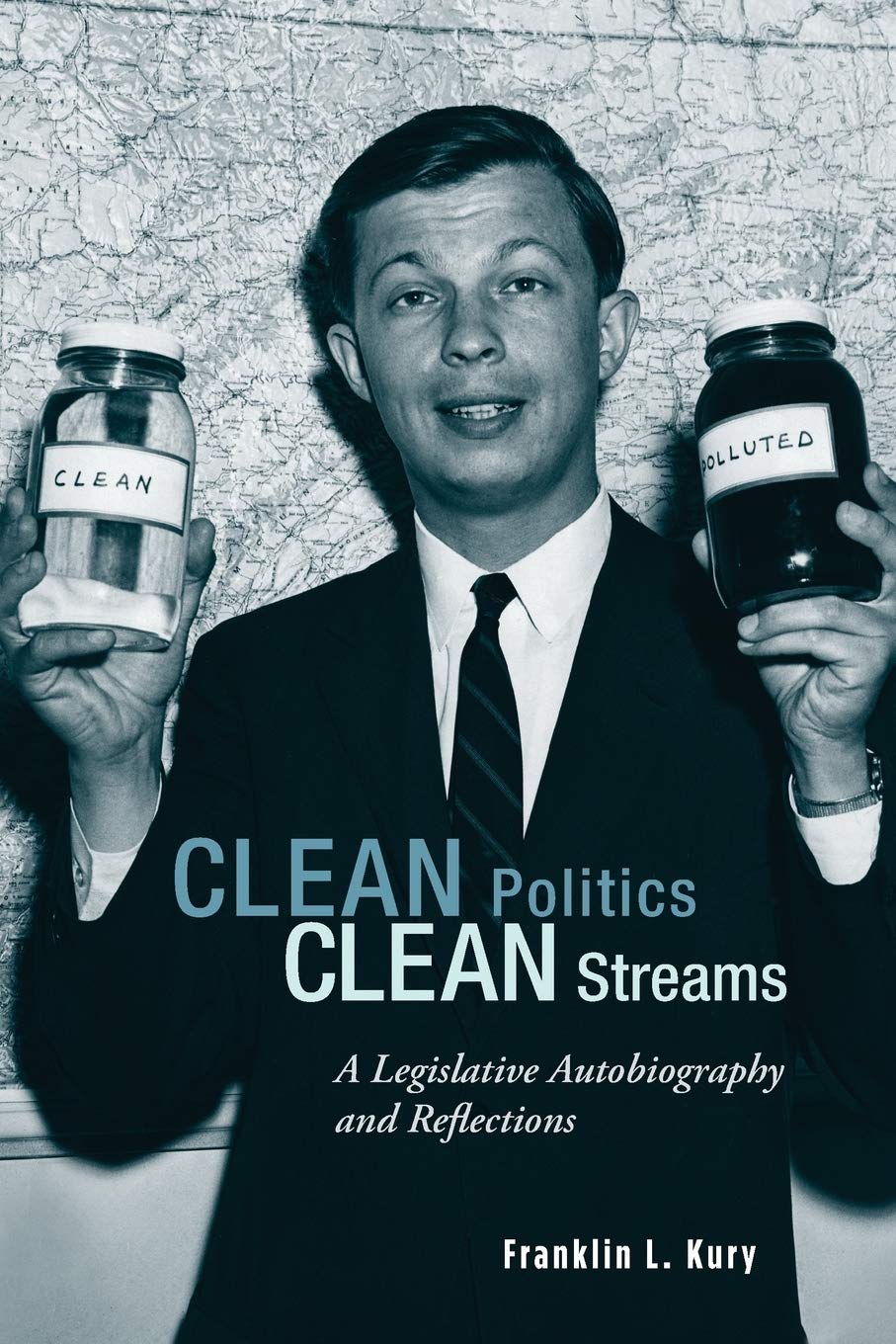Environmental Rights Amendment
Article I Section 27 of the Pennsylvania constitution states:
The people have a right to clean air, pure water, and to the preservation of the natural, scenic, historic and esthetic values of the environment. Pennsylvania's public natural resources are the common property of all the people, including generations yet to come. As trustee of these resources, the Commonwealth shall conserve and maintain them for the benefit of all the people.
Why Do We Have an Environmental Rights Amendment?
In the 1960s and 70s Pennsylvanians were waking up to the effect of centuries of largely unrestricted exploitation of the natural environment. The lumber harvesting practices of the 19th century had devastated millions of acres and left much of Pennsylvania barren while the industry picked up and moved to other states. Deforestation, pollution and unregulated hunting and trapping meant that game had practically disappeared from the state at the turn of the 20th century.
 Well into the 20th century, virtually unregulated coal mining scarred the natural environment of coal-rich areas with banks of burning coal and refuse, underground mine fires, water pollution from acid mine drainage, strip mining pits, and acid water impoundments.
Well into the 20th century, virtually unregulated coal mining scarred the natural environment of coal-rich areas with banks of burning coal and refuse, underground mine fires, water pollution from acid mine drainage, strip mining pits, and acid water impoundments.
Localized environmental tragedies like the 1948 Donora smog tragedy, the 1959 Knox Mine disaster, the 1961 Glen Alden mine water discharge, and the 1962 Centralia mine fire brought into stark relief the human and environmental costs of unrestricted and unmitigated exploitation of the environment.
 In the words of an anonymous Pennsylvania resident:
In the words of an anonymous Pennsylvania resident:
We seared and scarred our once green and pleasant land with mining operations. We polluted our rivers and our streams with acid mine drainage, with industrial waste, with sewage. We poisoned our delicate, pleasant and wholesome air with the smoke of steel mills and coke ovens and with the fumes of millions of automobiles. We smashed our highways through fertile fields and thriving city neighborhoods. We cut down our trees and erected eyesores along our roads. We uglified our land and we called it progress.
In 1971, Pennsylvanians decided that we could not continue down this path. We could not relegate to history books the valuable natural and esthetic aspects of our environmental inheritance. Pennsylvanians decided that all people had a right to a clean and safe environment that could not be sacrificed on the altar of a “progress” that left our land barren, our water polluted, and our air unsafe to breathe. We decided that the environment was entitled to the strongest protection under law. Thus, the Environmental Rights Amendment or ERA was born.
What is the Environmental Rights Amendment?
The ERA is found in Article I, Section 27 of the Pennsylvania Constitution. It reads:
The people have a right to clean air, pure water, and to the preservation of the natural, scenic, historic and esthetic values of the environment. Pennsylvania's public natural resources are the common property of all the people, including generations yet to come. As trustee of these resources, the Commonwealth shall conserve and maintain them for the benefit of all the people.
Structured as it is, in three sentences, the ERA effectively does three things:
- It establishes that the people of Pennsylvania have a right to clean air, pure water, and the preservation of natural, scenic, historic and esthetic values of the environment.
- It establishes that “public natural resources” are the common property of all Pennsylvanians, including future generations.
- It makes the Commonwealth—including all levels and branches of government—the trustee of these public natural resources. This means that the Commonwealth has a duty to conserve and maintain Pennsylvania’s public natural resources for the benefit of the people.
 When the Environmental Rights Amendment was proposed by State Legislator Franklin L. Kury on the first Earth Day in 1970, it received the unanimous assent of both the Pennsylvania House of Representatives and the Pennsylvania Senate. When put to the voters of Pennsylvania the following year, it was ratified by a vote of nearly four to one, with over one million people voting in favor.
When the Environmental Rights Amendment was proposed by State Legislator Franklin L. Kury on the first Earth Day in 1970, it received the unanimous assent of both the Pennsylvania House of Representatives and the Pennsylvania Senate. When put to the voters of Pennsylvania the following year, it was ratified by a vote of nearly four to one, with over one million people voting in favor.
The drafters chose to place the ERA in Article I of the Pennsylvania Constitution, otherwise known as the Declaration of Rights, which sets forth what the drafters consider to be “general, great and essential principles of liberty and free government.” This placement means that Pennsylvanians’ environmental rights are placed alongside and on par with our fundamental political rights such as freedom of speech, freedom of assembly, freedom of religion, the right to trial by jury, and the right to bear arms. Pennsylvania is one of only four states (along with Montana, Rhode Island, and New York) to elevate and affirm its people’s environmental rights in this way.
What Have Courts Said?
What do the ERA’s three short sentences mean in practice? Courts have spent fifty years analyzing this question. We’ve compiled a short review of some major court decisions from the past 50 years, which you can find here: The People Have a Right: A Brief Overview of Environmental Rights Amendment Case Law.
PennFuture’s Work on the Environmental Rights Amendment
PennFuture’ legal team works to strengthen our environmental rights while protecting and defending attacks on these fundamental constitutional rights through our litigation and regulatory commenting.
The following are representative examples of our more recent legal efforts on the ERA:
Clean Air Council, et al. v. Commonwealth, 279 MD 2023 (Pa. Cmwlth. 2023)
PennFuture, along with Clean Air Council, Sierra Club, Earthworks, and Protect PT, filed a lawsuit in 2023 with the PA Commonwealth Court arguing that the cap on bonding amounts for conventional oil and gas wells in Section 2 of Act 96 of 2022 violates both the trust obligations and the right to a clean and healthy environment guaranteed under the Environmental Rights Amendment. This litigation is ongoing.
As we explained in our petition to the court: “By freezing bonding amounts for these wells at their current inadequate level, Section 2 of Act 96 prevents prompt remediation and clean-up of the many conventional oil and gas wells that have stopped producing or otherwise been abandoned. These wells emit harmful pollutants to the air and water on an ongoing basis, and otherwise harm Pennsylvania’s natural environment every day they remain unplugged. This pollution has infiltrated Pennsylvanians’ drinking water, saturated their air with cancer-causing chemicals, increased the risk of fatal methane explosions, forced residents to live in fear, and marred the natural environment they enjoy so much.”
ZIADEH, et al. v. PA Legis. Ref. Bureau, et al., 85 MAP 2022/87 MAP 2022 (PA SC 2022)
PennFuture and our partners in this litigation (which is just one of the many lawsuits on this issue), Clean Air Council and Sierra Club, attempted to intervene in this lawsuit regarding the PA DEP’s carbon cap-and-invest regulation, known as the RGGI Rule. This rule would allow Pennsylvania to enter into the Regional Greenhouse Gas Initiative (RGGI), but was challenged by PA legislators in this lawsuit. This litigation is ongoing.
In our November 4, 2022 brief on appeal, we set forth the ERA basis for our right to intervene in this lawsuit as beneficiaries of the trust that the ERA creates. As we explained: “These public natural resources are held in trust for the people, who are the trust beneficiaries; the Commonwealth is the trustee, but not the owner of the resources nor a beneficiary of the trust. The most significant threat to those public natural resources is climate change, caused by the unchecked emission of greenhouse gases. . . . Where our Constitution creates the roles of trustee and beneficiaries of our public natural resources trust, where the litigation will indisputably have an impact on the corpus of the trust, and where the beneficiaries set forth why their interests are not adequately represented by the trustee, this Court should find that the involvement of the trustee alone is not adequate to represent the beneficiaries’ interest.”
PennFuture has also joined forces with a group of dedicated partners to act as amici curiae (“friends of the court”) in several lawsuits in which the ERA was implicated. This group includes PennFuture, Environmental Law and Sustainability Center at Widener Univ. Commonwealth Law School, Clean Air Council, Delaware Riverkeeper Network, and Green Amendments for the Generations.
These cases include:
In Yaw, et al. v. DRBC, a federal case in which PA State Senators and some municipalities challenged the Delaware River Basin Commission’s (DRBC) ban on fracking within the Basin. In an attempt to establish standing to file this lawsuit, the senators and municipalities relied on a fundamental misconception of the ERA and their roles and responsibilities as trustees thereunder. Our November 3, 2021 amici brief to the Third Circuit Court of Appeals (as well as our April 5, 2021 amici brief to the Eastern District of PA) explained in detail why the court should reject the erroneous claims that, as trustees, the senators are required to seek fracked gas development in the Basin and covert those public natural resources into money:
“Section 27 imposes no such duties and grants Appellants no such interest. First, the ERA recognizes publicly enforceable environmental rights as a limit on governmental power; it is not a grant of governmental authority. Second, trustees have a duty to “conserve and maintain” public natural resources for the benefit of present and future generations, not to exploit them for economic benefit. Third, the public natural resources to which the trust applies are primarily physical natural resources, not financial receipts from the use or sale of these resources . . . .”
In its decision, the Third Circuit agreed with us that the state senators, as “trustees” under the ERA, lacked the necessary standing to challenge the DRBC’s fracking ban (which “has not cognizably harmed the trust”), and affirmed the District Court’s dismissal of the case.
In the case of Gibraltar Rock, Inc. v. DEP, et al, our groups once again submitted an amici brief in support of the proper interpretation and application of the ERA, in this case, the Environmental Hearing Board’s conclusion that the DEP violated the ERA in granting mining and water quality permits to the company. As we explained in our January 13, 2022 amici brief, “Pennsylvania’s life-sustaining and irreplaceable natural resources had been consumed and depleted with abandon, often for the benefit of private interests at the expense of the public as a whole. Critical to the new approach embodied in the ERA is the principle that the Commonwealth be well-informed of the environmental effects of its actions in advance, and use that knowledge to prevent blind infringement of the rights protected. . . By relying unquestioningly on the applicant’s analysis of the proposed quarry’s environmental effects, and by failing to consult with its own hazardous sites program, the Department completely overlooked that Gibraltar’s quarrying would exacerbate groundwater contamination. In essence, the permits were issued without regard to the risk of groundwater pollution, and thus without regard for the Department’s constitutional duties under the ERA.”
Finally, PennFuture also used the ERA to urge DEP to strengthen its Environmental Justice (EJ) Policy. In our 2022 comments on the Draft EJ Policy, we argued that the ERA requires DEP to guarantee our constitutional environmental rights as part of its EJ Policy: “ The ERA prohibits “disparate effects,” and laws that require such effects may be null. Agencies must consider how their decisions will affect Pennsylvania’s resources. And the ERA limits the Commonwealth’s power to degrade air, water, and other natural values. The Policy should squarely address and implement the ERA, and the Department’s powers and duties to pursue environmental justice thereunder.” In 2023, we argued that DEP should rely on the ERA to make its EJ Policy into a formal rule, and not just agency guidance.
Resources
Movie: Mark Lichty, executive producer of Groundswell Rising and member of PennFuture’s President’s Leadership Council, recently produced A Fractured State, an important film on Pennsylvania’s Environmental Rights Amendment.
Policy Brief: Pennsylvania’s Constitutional Environmental Rights Amendment
Blog: Upholding the True Meaning of Pennsylvania’s Environmental Rights Amendment (Oct. 12, 2022)
Forum & Blog: Environmental Rights Amendment Forum Sparks Timely Conversation (Sept. 25, 2017)
Blog: How the Environmental Rights Amendment Strengthens Our Impact (Aug. 22, 2017)
Scholarly Articles: PennFuture Board Member John Dernbach is a preeminent expert on Pennsylvania’s ERA and has written extensively on the matter.
Movement: Green Amendments for the Generations